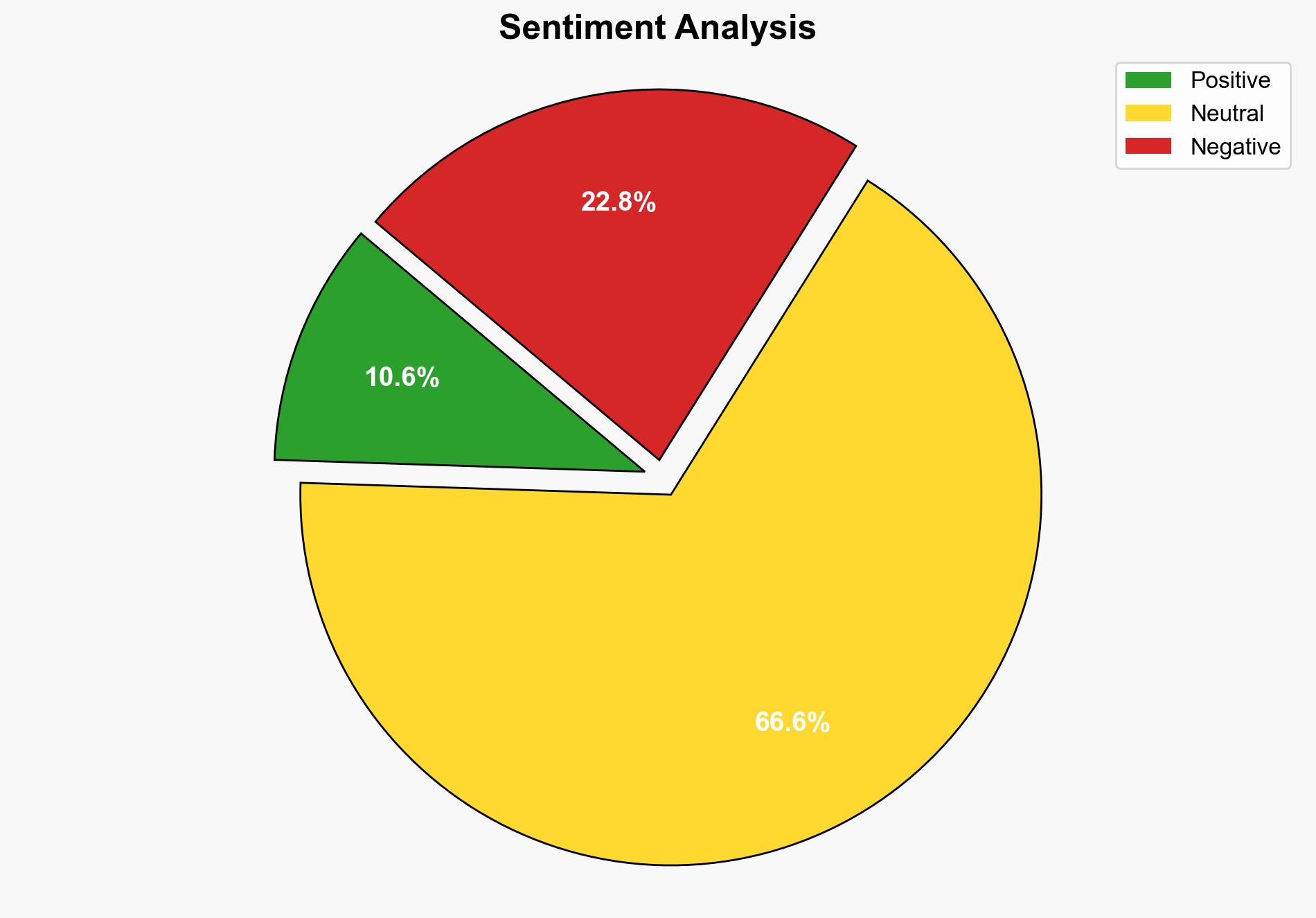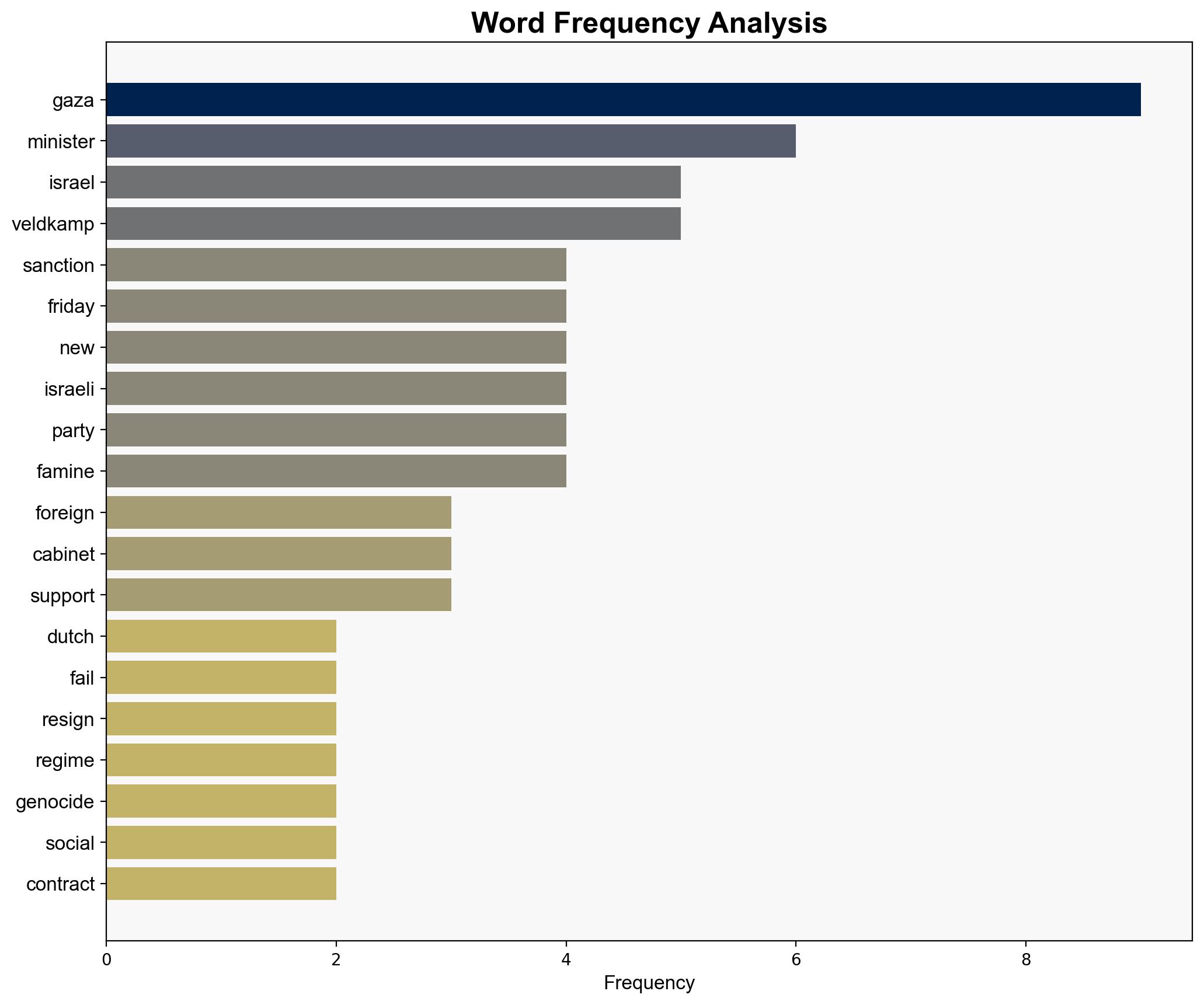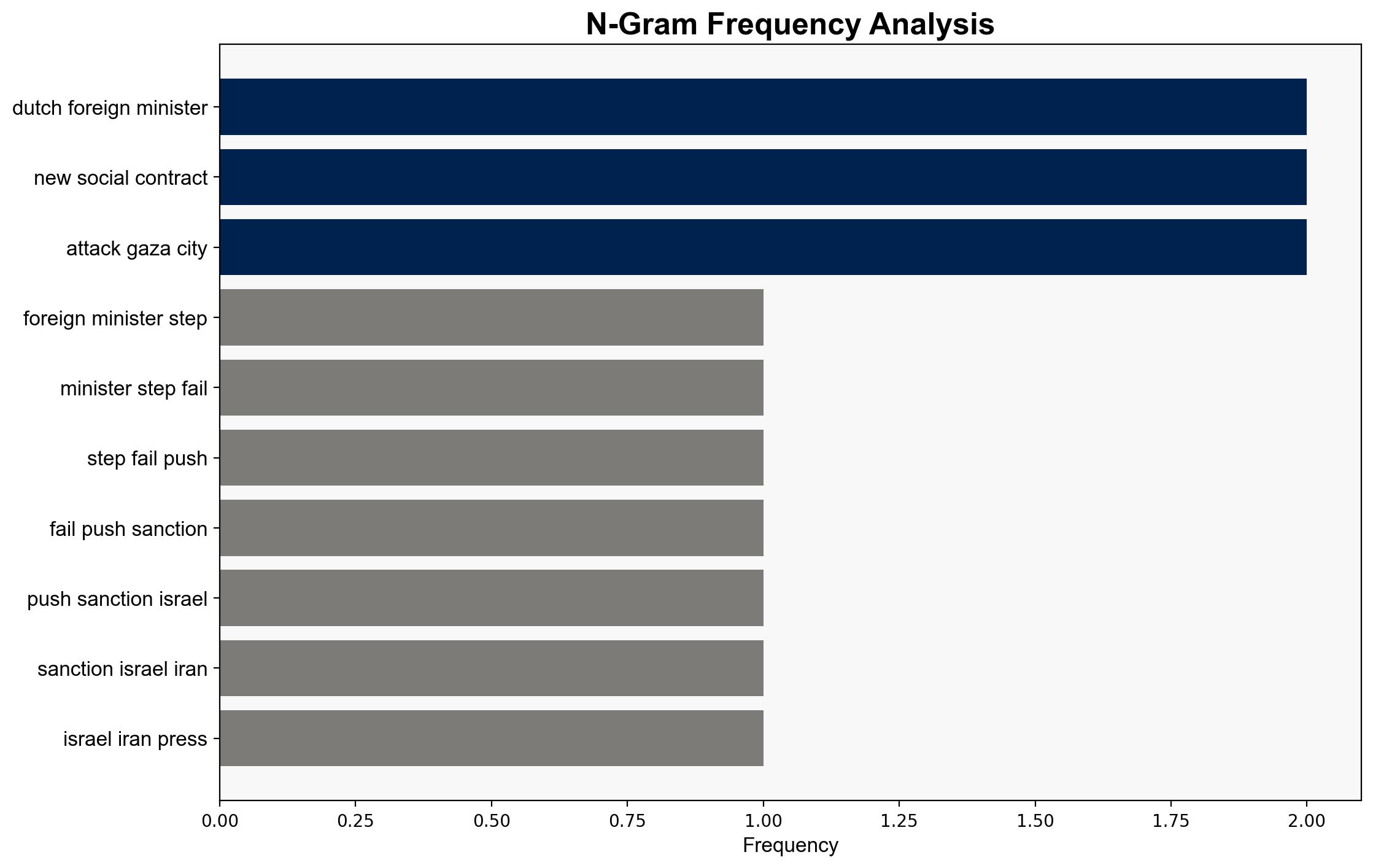Dutch foreign minister steps down after failed push for sanctions against Israel – Globalsecurity.org
Published on: 2025-08-25
Intelligence Report: Dutch foreign minister steps down after failed push for sanctions against Israel – Globalsecurity.org
1. BLUF (Bottom Line Up Front)
The resignation of Caspar Veldkamp, the Dutch foreign minister, reflects internal political discord and international pressure regarding the Netherlands’ stance on Israel. The most supported hypothesis is that Veldkamp’s departure is primarily due to domestic political dynamics rather than a shift in foreign policy. Confidence level: Moderate. Recommended action: Monitor Dutch political developments and potential shifts in EU-Israel relations.
2. Competing Hypotheses
1. **Domestic Political Dynamics Hypothesis**: Veldkamp’s resignation is driven by internal political disagreements within the Dutch government, particularly concerning the coalition’s stance on Israel and the failure to secure cabinet support for sanctions.
2. **International Pressure Hypothesis**: The resignation is primarily a response to international pressure and criticism over the Netherlands’ foreign policy towards Israel, particularly in light of the humanitarian situation in Gaza.
Using the Analysis of Competing Hypotheses (ACH) 2.0, the Domestic Political Dynamics Hypothesis is better supported due to the detailed account of internal resistance and the context of a caretaker government following the coalition’s collapse.
3. Key Assumptions and Red Flags
– **Assumptions**: The assumption that Veldkamp’s resignation is solely due to internal politics may overlook external influences. Conversely, assuming international pressure as the main driver might ignore domestic political complexities.
– **Red Flags**: The lack of explicit statements from other Dutch officials regarding the resignation suggests potential undisclosed factors. The timing of the resignation amidst a political crisis raises questions about its true motivations.
4. Implications and Strategic Risks
– **Political Instability**: The resignation could exacerbate political instability in the Netherlands, potentially affecting EU policies towards Israel.
– **Geopolitical Tensions**: A shift in Dutch policy could influence EU-Israel relations, potentially leading to increased tensions or realignment within the EU.
– **Humanitarian Concerns**: Continued inaction on the humanitarian crisis in Gaza could lead to broader international condemnation and pressure on the Netherlands and the EU.
5. Recommendations and Outlook
- Monitor the Dutch political landscape for signs of policy shifts or new coalition formations.
- Engage with EU partners to assess potential changes in collective foreign policy towards Israel.
- Scenario Projections:
- Best Case: A new coalition forms with a clear and unified foreign policy stance.
- Worst Case: Prolonged political instability leads to inconsistent foreign policy and weakened EU influence.
- Most Likely: Gradual policy adjustments with continued internal debate and external pressure.
6. Key Individuals and Entities
– Caspar Veldkamp
– Eddy van Hijum
– Bezalel Smotrich
– Itamar Ben Gvir
– Geert Wilders
7. Thematic Tags
national security threats, geopolitical dynamics, EU foreign policy, Middle East relations





